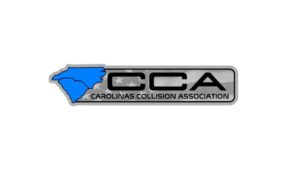
Body shops, tow industry resist changes to N.C. total loss law
By onAnnouncements | Associations | Business Practices | Insurance | Legal | Market Trends
A new round of rulemaking found North Carolina collision repairers obtaining better storage disposition notification and fighting off other unwanted changes to total loss rules, a body shop owner said Tuesday.
Carolina’s Collision Association President Brian Davies (Body Works Plus) said repairers had been on a task force to provide the Department of Insurance with ideas for altering North Carolina laws.
The NCDOI had ultimately proposed cleaning up some language and changing some aspects of the North Carolina Administrative Code for the better, according to Davies. However, repairers were concerned by two of the agency’s ideas regarding the state’s rules for total losses.
11 NCAC 04.0418 had explained “The insurer shall be responsible for all reasonable towing and storage charges until three days after the owner and storage facility are notified in writing that the insurer will no longer reimburse the owner or storage facility for storage charges.”
The NCDOI in December 2019 suggested: “The insurance company shall be responsible for all reasonable and customary towing and storage charges until three days after the motor vehicle’s owner and storage facility are notified in writing that the insurance company will no longer reimburse the motor vehicle’s owner or storage facility for storage charges.” (Emphasis added.)
The agency also proposed new language defining “Reasonable and customary towing and storage charges” as “the amount that is generally charged in in the local business market.”
“Local business market” wasn’t defined in the NCDOI’s December 2019 draft. However, the proposal (and the changes ultimately adopted into law) do define a large “Local Market Area” to use when calculating actual cash value for a consumer.
“‘Local Market Area’ means an area within a 100-mile radius of the place where the motor vehicle
is principally garaged,” the adopted version of NCAC 04.0418 states. “If a substantially similar motor vehicle is unavailable within a 100-mile radius, the insurance company may increase the radius in increments of 50 miles until a substantially similar motor vehicle can be found.”
The NCDOI also proposed striking the current requirement that “In instances where the towing and storage charges are paid to the owner, the check or draft for the amount of such service shall be payable jointly to the owner and the towing or storage service.”
Auto body shops opposed this deletion as well, according to Davies.
Repairers and a North Carolina towing trade association appeared at a January hearing to fight the changes, Davies said.
The DOI ultimately jettisoned its new “reasonable and customary” and “local business market” language and retained the same “payable jointly” provision the Administrative Code possessed before.
The NCAC 04.0418 ultimately approved is “what we wanted,” Davies said.
Davies said the adopted law made a “really good” change to the requirement to notify a body shop or other storage facility in writing before storage charges cease to fall upon a carrier.
NCAC 04.0418 now states that “The insurance company shall be responsible for all reasonable towing and storage charges until three days after the motor vehicle’s owner and storage facility are notified in writing that the insurance company shall no longer reimburse the motor vehicle’s owner or storage facility for storage charges. … Proof of mailing, as defined in Rule .0430 of this Section, shall serve as the proof that the notification required by this Rule occurred.” (Emphasis added.)
11 NCAC 04.0430 demands “a certificate issued by and bearing the date stamp of the United States Postal Service or an official United States Postal Service tracking number or similar proof of mailing.”
Davies said that historically, insurers sometimes would deliver this notification to an obscure email or to the customer. The message might not reach the right person at the body shop or storage facility, according to Davies.
Storage and towing often get out of hand in North Carolina, he said.
There needed to be a “more formal way” of conveying the message, Davies said.
The revised language takes effect Oct. 1.
The Carolina’s Collision Association logo is shown. (Provided by CCA)
